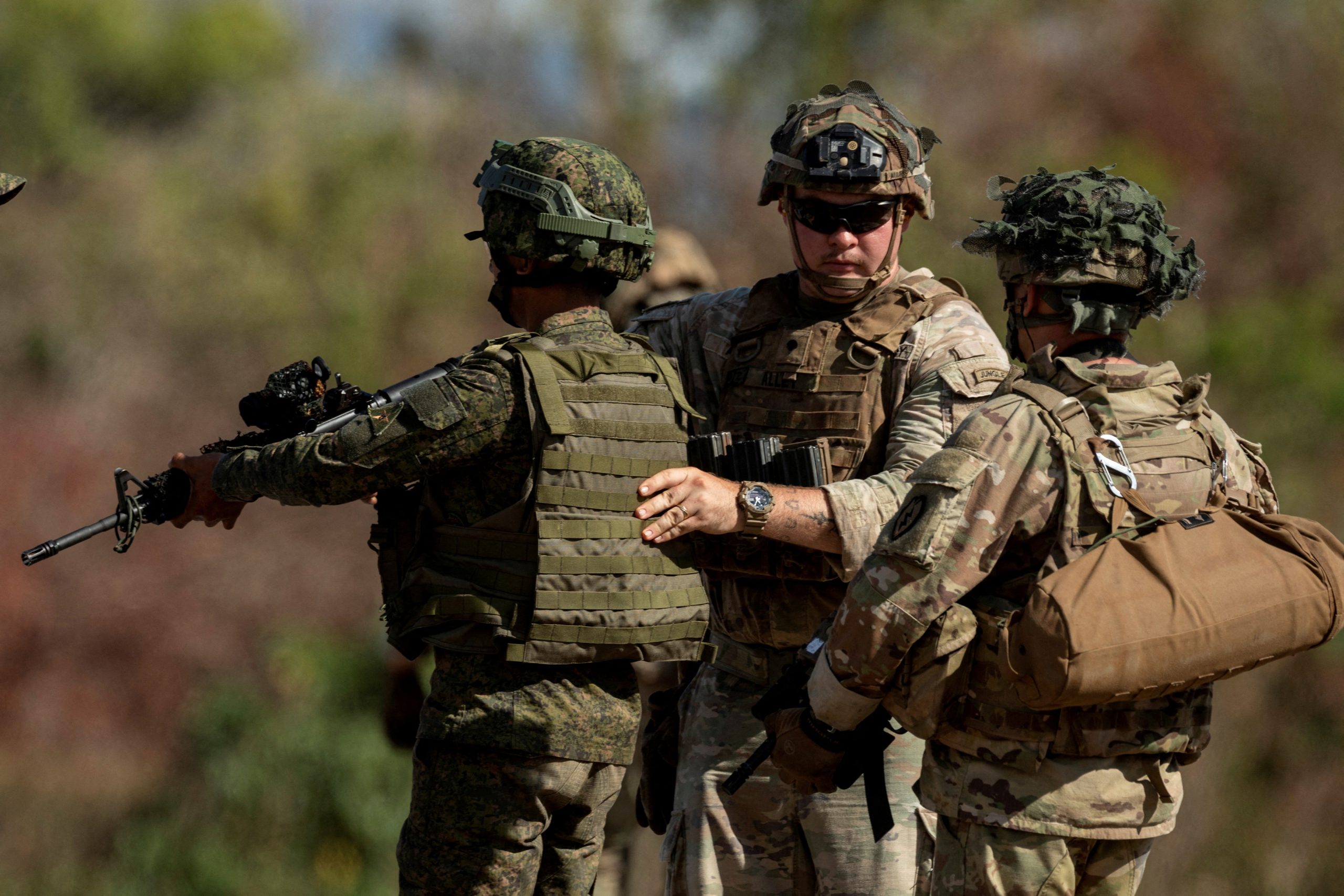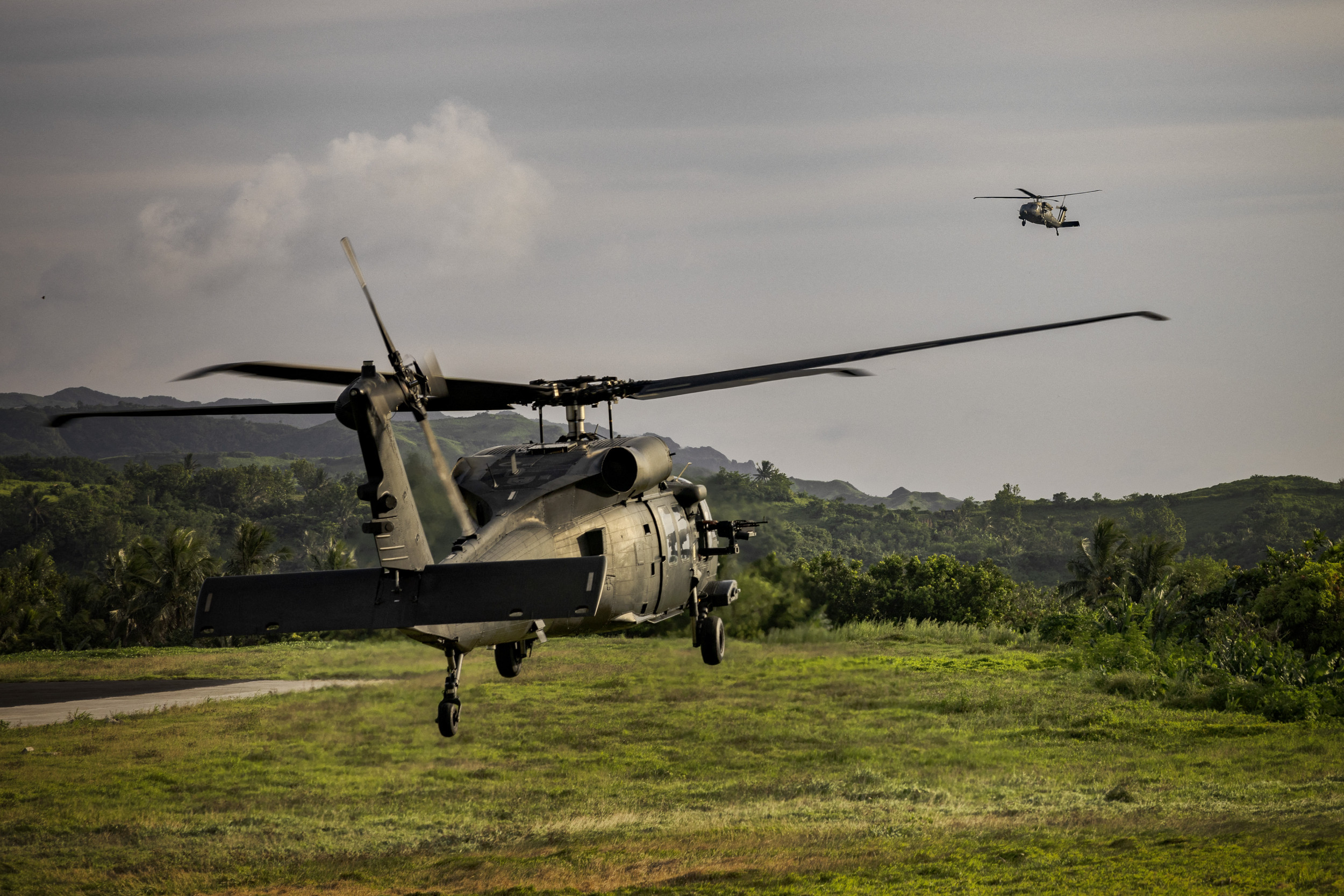The U.S. Army is gearing up to play a crucial role in the construction of a new civilian seaport in Batanes, a strategically significant province in the Philippines.
Governor Marilou Cayco of Batanes shared insights, noting that the Philippines, with funding from the U.S., is spearheading the development of this port. The primary objective behind this initiative is to establish a crucial entry point for Philippine nationals who might need to evacuate in the event of heightened tensions concerning Taiwan, as reported by ABS-CBN News.
This development comes on the heels of reports from the previous year indicating the U.S. military’s keen interest in erecting port facilities within the Batanes archipelago. Situated a mere 130 miles from Taiwan, Batanes holds considerable strategic value. It’s a territory that China lays claim to and has expressed intentions to annex by any means necessary.

U.S. Army Collaborates in Strategic Port Development in the Philippines Amid Regional Tensions (Credits: Reuters)
Scheduled for next month, representatives from the U.S. Army are slated to arrive to engage in discussions about the port project, according to Governor Cayco.
The Philippines, being a defense treaty ally of the United States, is part of the “first island chain,” a network of U.S. partners and allies strategically positioned around China. Batanes, in particular, stands out due to its proximity to the Bashi Channel, a potential chokepoint that could impede Chinese forces seeking access to the open Pacific.
The Enhanced Defense Cooperation Arrangement (EDCA) between Washington and Manila, announced last year, has paved the way for expanded access for U.S. forces to four military bases in the Philippines.
However, the extent of the American military presence at the port post-completion remains uncertain. Nevertheless, such presence could become significant should the U.S. intervene in defense of Taiwan or if the U.S.-Philippine Mutual Defense Treaty is invoked.
In parallel efforts to bolster its defenses, the Philippines is deploying more naval reservists around the province and reinforcing a remote outpost on Mavulis Island. These initiatives align with a commitment made by Philippine armed forces chief Gilberto Teodoro Jr. to strengthen the country’s defensive capabilities, particularly in regions considered the “spearhead” of national territory.
Liu Pengyu, spokesperson for the Chinese Embassy in Washington, D.C., emphasized the importance of neighborly relations based on mutual respect for sovereignty and territorial integrity when addressing the planned port. Notably, he underscored the sensitivity surrounding the Taiwan issue, urging Philippine stakeholders to navigate it cautiously to avoid potential repercussions.
The escalating territorial dispute between the Philippines and China in the resource-rich South China Sea adds complexity to regional dynamics. Chinese maritime forces have increasingly employed tactics such as blockades and water cannons against Philippine supply convoys to the Spratly Islands’ Second Thomas Shoal, leading to confrontations and damage to Philippine vessels.
Recently, tensions reached a crescendo, resulting in collisions and damage to a supply ship. Footage depicting a Chinese water cannon shattering the ship’s windshield highlighted the risks involved in these encounters, causing injuries to several crew members, as reported by Manila.
Against this backdrop, the Philippine government has approved substantial investment plans totaling $35 billion aimed at upgrading its defense capabilities over the next decade. Such investments underscore the nation’s commitment to bolstering its security amid evolving regional challenges.























